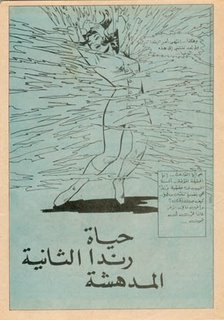Or, as my kid says, Whiggidy wackness.
I haven't read a single sentence of fiction this week. I haven't read the news, either. I have no idea what's happen with our government, with hurricanes, with Angelina Jolie, with France, with Palestine, with anything at all.
I have been finishing up my grad school applications and doing a little bit of writing,
I am now filling stuff out at Bookpeople while a huge table packed with menopausal women pretend to talk about Sarah Bird books for a book club... they're really talking about Meg Ryan's face. I keep looking up to see if they're kidding. Some guy across from me is on the phone with a friend and keeps saying things like, "Bush sold us to the Goddamn Commies, the son-of-a-bitch." A father shifts uncomfortably to my left, holding his son's hand a little tighter. A few hippies on my right are just sitting around quietly, and a dozen old ladies with blue hair sit in a circle all around us, waiting. We are waiting for new Narnia tickets, I am told. I had no idea they were giving them out, but what the heck, I'll take one. I'm part of this group whether or not I want to be.




